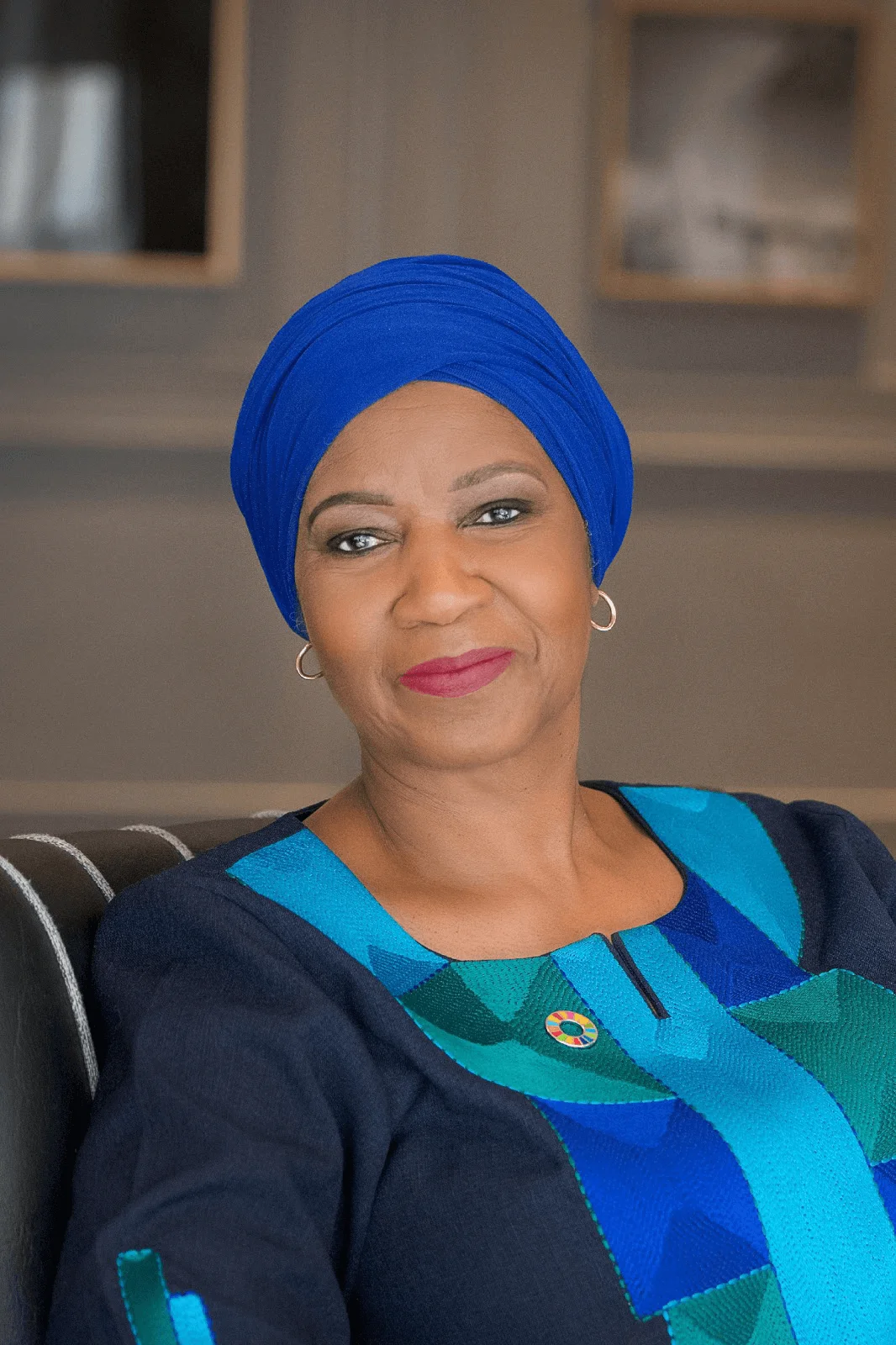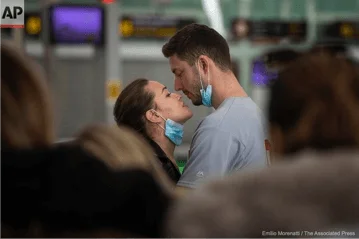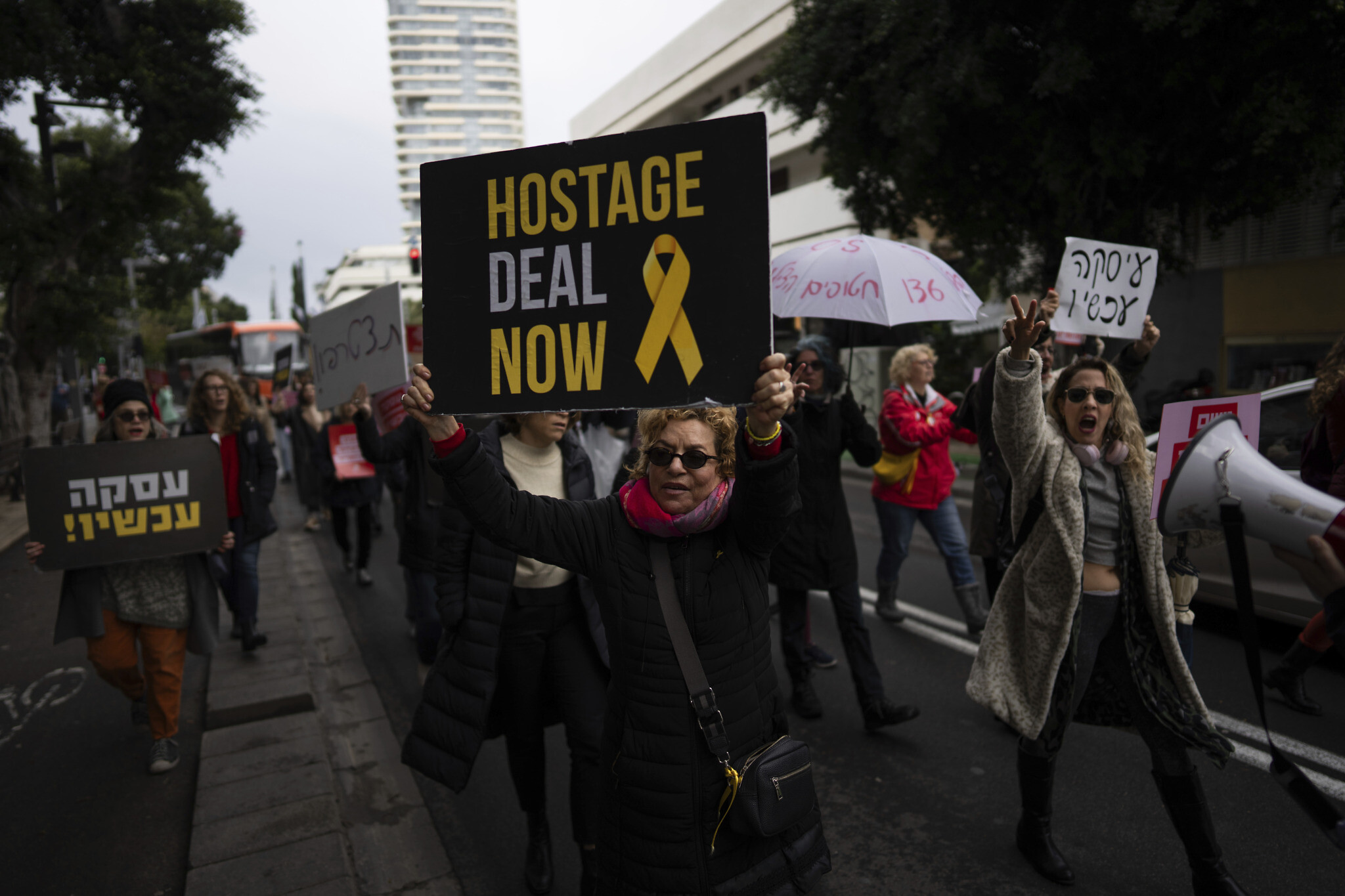Trump's Battle To Be On US President’s Ballot, 'Trump Versus Anderson' In The Us Supreme Court

Recently the Secretary General of the United Nations, Antonio Guterres tweeted, “Peace is not just the absence of war. Many women under lockdown for COVID-19 face violence where they should be safest in their homes. Today I appeal for peace in homes around the world. I urge all governments to put women’s safety first as they respond to the pandemic”.
The combination of economic and social stress brought on by the pandemic, as well as restrictions on movement, has dramatically increased the abuse of women & girls , in almost all countries. Let us examine the spiral increase in the domestic violence incidents against women all over the world and India in particular.
Domestic Violence Around The World
The UN has reported that since the pandemic, Lebanon and Malaysia have seen number of calls to helplines double, in China , they have tripled, in Australia, search engines such as Google are seeing the highest magnitude of searches for domestic violence help. ANI reported that as many as 4093 domestic abuse arrests have been made in London since the start of the COVID-19 restrictions in March with an average of nearly 100 calls a day. In Ireland, 35.8% increase is reported in domestic violence related calls.
Various news agencies have reported that domestic violence cases have increased tremendously in Japan since restrictions have been imposed due to the pandemic. Similarly, incidents have increased in France as well with the Interior Minister Christophe Castner publicly admitting that domestic violence has increased by 30% since the lockdown. Euronews has reported that “WHO is deeply troubled by the reports from many countries, including Belgium, Bulgaria, France, Ireland, Russia, Spain, UK and others of increases of interpersonal violence - including violence against women and men, by an intimate partner and against children - because of COVID-19 response”. In Latin America, during the lockdown the cases of domestic violence have increased tremendously. In Chile, calls to domestic abuse helplines have increased 70% in the quarantine period. In Brazil there was a 45% jump in cases of violence against women. In Colombia, daily domestic violence calls to a national women’s hotline were up nearly 130% during the first 18 days of quarantine. In Argentina the rise in domestic violence calls during pandemic is 67%. In USA and Canada too the cases of domestic violence have increased. The Canadian minister of women and gender equality Maryam Monsef on April 27, 2020 has said that the COVID-19 has empowered perpetrators of domestic violence as consultations reveal that abuse rates were rising in parts of Canada.
In Middle-East also it is the same story of increase in domestic violence. In the Gaza strip, there is a 30% increase in violence against women since lockdown began. In Lebanon, a domestic violence helpline set up by Internal security Forces has seen calls double.
Domestic Violence In India During Pandemic
As per a Hindustan Times report dated April 26, 2020, nearly 2500 women in Delhi called emergency helpline numbers which triggers the Emergency Response Support System of State police. Of these calls over 600 were classified as “women abuse”, 23 calls reported rape, while a majority- 1612- pertained to domestic violence. In a PIL the Division bench of the Delhi High court of Justice J. R. Midha and Justice Jyoti Singh directed the Centre and the State government to hold a top level meeting to deliberate on measures to curb domestic violence and protect the victims during the COVID-19 lockdown.
PTI has reported that the National commission for Women (NCW) has so far received 315 complaints online and on WhatsApp. The NCW has launched a WhatsApp number - 7217735372 to report cases of domestic violence. A total of 800 calls was received by the NCW of various crimes committed against women.
In Tamil Nadu, 616 complaints were received relating to domestic violence between March 25 to May 14, 2020. The Maharashtra State Commission for women has received 107 emails from women facing domestic violence since the lockdown came into force. Another organisation affiliated to MSWC has received nearly 100 calls per day during the lockdown period. Social workers in Maharashtra fear that the actual number of domestic violence cases could be far more than what is being recorded. In West Bengal as reported by State’s Women Commission, nearly 70 cases have been reported of domestic violence. According to the State government in Karnataka, 477 calls were received from victims of domestic violence during pandemic. In a matter before the Karnataka High Court, the division bench of Chief Justice Abhay Oka and Justice B. V. Nagarathna observed that the state government’s response on how it would tackle issues of violence and abuse on women and girls was not clear. The State government’s ambiguity on directions to protection officers of what action they should undertake after receiving calls by women who were victims of violence was conveyed by the court . In Punjab it is reported that the Helpline received an average of 133 calls per day relating to domestic violence and Andhra Pradesh recorded about 117 calls of which about 45 were related to domestic violence during the ongoing lockdown. These numbers clearly indicate the rising trend of domestic violence and abuse against women across India currently..
Tackling Domestic Violence
Governments across the world are trying to come up with measures to tackle violence against women in times of restrictions as these . Italy has launched an app that allows asking for help without the need to make a phone call. Westen Australia has created a COVID-19 Family & Domestic Violence Task Force and has allowed courts to impose electronic-monitoring on offenders as well as raised penalty amounts for crimes of domestic violence. In April the Irish police, had launched the “Operation Faoisimh” which was described as a proactive initiative to ensure that victims are supported and protected during the pandemic. The Scottish government relaunched its previous awareness campaign against domestic abuse on April 10,2020. French authorities have roped in pharmacies among the shops still open during the lockdown - to help the victims of domestic violence and abuse who could raise the alarm by using a code word and the pharmacists would then alert the police. A similar system has also been deployed in Spain. In UK, the government announced a new 76 million pounds funding to help domestic violence victims feeling trapped due to the COVID-19 lockdown. The new funding of 76 million will go towards providing safe spaces and accommodation for victims of abuse and the recruitment of workers for helping victims of sexual violence and frontline charities supporting those in need, including virtual or phone based services. Surprisingly, on May 5,2020, the Hungary’s Parliament adopted a declaration not to ratify the Istanbul Convention of violence against women. This decision is extremely dangerous coming at a time when reported domestic violence incidents in Hungary have doubled since the COVID-19 lockdown.
Vickie Skorji, lifeline Director at TELL Japan, has reportedly told “Metropolis”, Japan’s English magazine, “ In times of disaster, we are all placed under extra stress, which in turn puts extra pressure on relationships that are already strained or vulnerable. The more stressors on the individuals the greater the stress on the relationship. Perhaps one or both parties have lost their job, they may have children or have to work at home; hence we are seeing an increase in divorces at the moment. When it comes down to COVID-19, people are being asked to stay at home giving couples who are stressed , no release or place to escape each other. For those in abusive relationships, this makes them very vulnerable and even more isolated. If drinking is one of the partners coping mechanisms, things can get out of control quickly”.
Finding Solutions In Indian Situation
Counselling: The need of the hour is counselling. But due to the ongoing lockdown physical counselling is not possible. However counselling via video conference or phone is certainly possible . The reason why counselling is the only viable alternative we have in India currently is because we do not have the logistics to move victims to safe homes or order the perpetrators of domestic violence out of their homes, especially without any preliminary enquiry.
Judicial Intervention: Courts in India are not taking up matters presently unless there is an urgency that requires their intervention due to the lockdown. Therefore matters concerning bail and several others do not merit an urgency for immediate hearing . Unfortunately matters of domestic violence are also being treated likewise as “not urgent’’ . And herein lies the malady. No urgency means women and girls who are victims of abuse and domestic violence cannot move courts to restrain their perpetrators from inflicting violence on them. It is imperative for Courts to give hearings when domestic violence matters are filed and urgent interim relief is sought. Chief Justice of India and Chief Justices of High Courts must give directions to the lower judiciary to deal with domestic violence matters with the urgency due to them.
Isolating Perpetrators: Ever heard of institutional quarantine? The Pune Zilla Parishad has adopted a worthy of note method to deal with perpetrators of abuse and domestic violence during the ongoing lockdown. Abusive husbands and wife-beaters across Pune district now face institutional quarantine if there is a complaint of domestic violence.
Free Ambulance Service: Women and girls who are victims of abuse and domestic violence often require urgent medical aid due to injuries they sustain.They will need ambulances to rush them to medical facilities for treatment. Ambulance owners/service providers should not be allowed to charge for ferrying them to medical centres and back during the lockdown period. State governments must give specific directions to facilitate this and treat the issue with the sensitivity it merits.
Police Intervention: The only available option for victims of domestic abuse and violence in the present circumstances of lockdown is approaching the police for help. NGOs which come to the rescue of many victims of abuse are unable to extend help in the present situation of lockdown but the police can provide protection to them. State governments must give clear directions to police authorities to treat domestic violence cases as most urgent . Many policemen at police stations are not even aware of the existence of a provision called the ‘Zero FIR’. And it is time they are apprised of it. It would be helpful for State police authorities to take a cue from their Punjab teammates. Dinkar Gupta ,DGP of the State of Punjab held a video conference with all DSPs while the lockdown was still in place and it was decided that cops handling domestic violence cases would hereon submit reports of abuse against women and girls every day to DSPs who would monitor the action taken. I believe this is noteworthy and every State police authority could work on similar lines .

Final Word
Echoing the United Nation Chief’s message to the governments, Phumzille Mlambo - Ngcuka, Executive Director of UN Women, said that confinement of fostering the tension and strain created by security, health and money worries; And is increasing isolation for women with violent partners. She described the situation as “a perfect storm for controlling, violent behaviour behind closed doors”. Domestic violence is already, said the UN Women Chief, widely under-reported, with less than 40% of women who experience violence seeking help, and the pandemic is making reporting even harder, because of “limitation on women’s and girl’s access to phones and helplines and disrupted public services like police, justice system and social services. “If not dealt with, this shadow pandemic will also add to the economic impact of COVID-19. The global cost of violence against women had previously been estimated at approximately USD 1.5 trillion. That figure can only be rising as violence increases now, and continues in the aftermath of the pandemic”, said the UN Women Chief.
In conclusion I say that these limitations might fuel impunity for the perpetrators, if the police, justice system and NGOs do not give priority to domestic violence during and after the pandemic lockdown. Otherwise the words of Ayshree Nandan, who wrote in TOI Blogs (May 21,2020), under the headline - “Is Domestic Violence The Next Pandemic In India?”, will come true.


































